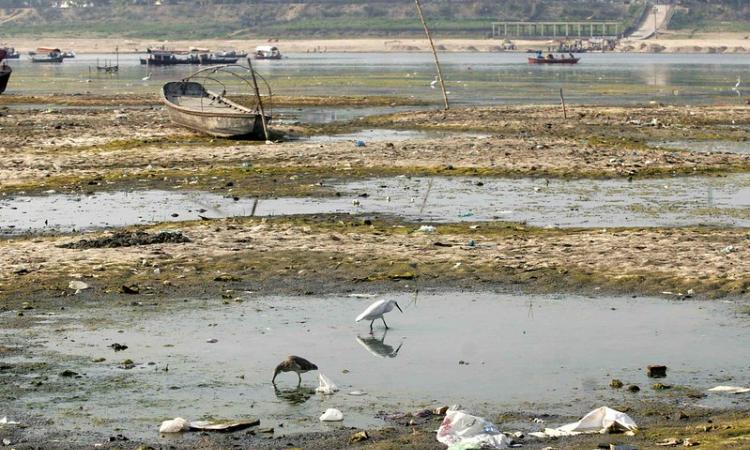
Jal Shakti Ministry draws focus towards revival of Ganga wetlands
To revive and conserve the wetlands in the Ganga basin, the Jal Shakti Ministry has asked the Deputy Commissioners of the districts concerned in the basin states, to identify the wetlands which are in various stages of disintegration through its National Mission for Clean Ganga (NMCG).
The ministry has also prepared a roadmap in collaboration with the World Wide Fund for Nature-India. The roadmap includes an engagement programme to support and empower the District Ganga Committees (DGCs) with an aim to promote rejuvenation and conservation of urban and rural wetlands at the district level.
(The Tribune)
Devise a mechanism to control river pollution: NGT to the Ministry of Jal Shakti
Noting the continuous failure of a statutory mechanism for preventing pollution of rivers without fixing any accountability for such serious failures, the National Green Tribunal (NGT) has ordered the Ministry of Jal Shakti (MoJS) to devise an appropriate mechanism for effective monitoring of steps for controlling pollution and rejuvenation of all polluted river stretches in the country. The tribunal further said that the mechanism may be called “National River Rejuvenation Mechanism” (NRRM), or given any other suitable name, for considering the observations regarding setting up of National/State/District Environment Data Grid at appropriate levels as an effective monitoring strategy. (Outlook India)
Authorities get in action against the backdrop of Uttarakhand floods
At the request of Chief Minister Trivendra Singh Rawat, the Union Home Minister Amit Shah has given in-principle approval for establishing a Glacier and Water Resources Research Center in the state. The request was made following the Chamoli flash floods that struck the state on the morning of February 7.
Along with this, the National Green Tribunal (NGT) has directed NTPC to pay Rs 58 lakh for damaging the environment by violating the muck disposal site maintenance norms at its Tapovan Vishnugad hydropower project in Chamoli.
(The Times of India, The Economic Times)
Restoration of Pallikaranai marshland on the cards while Adyar eco-restoration is in full swing
In view of the recent flooding incidents in the southern suburbs of Chennai, the Tamil Nadu Government has announced an integrated project to restore the absorptive capacity of Pallikaranai marshland at a tentative cost of Rs 816.80 crore. The purpose of the project is to clear and drain waterways feeding into and out of Pallikaranai marsh and restore its absorptive capacity. The desilting work on a portion of the Adyar as part of the eco-restoration project is set to be completed by this month end. The 25 km stretch of the river from the Thiru. Vi. Ka. bridge to the Tiruneermalai bridge would sport a clean look soon as the Water Resources Department is finishing the improvement work at a cost of Rs 94 crore. (The Hindu)
Chhattisgarh drains to get a new lease of life
Through the Narva (Nala) Development Scheme for the conservation and recharge of groundwater in the state, the Water Resources Department is reviving the river-drains and water sources of Chhattisgarh.
Under the first phase of the scheme, 1385 Narva have been identified for treatment in the state, out of these 1372 drains are being constructed for the conservation of rainwater by constructing and treating structures to retain water and improve the groundwater levels.
As per the WRD official data, about 71, 831 structures of various types have been approved for construction to conserve rainwater under the scheme in the past two years out of which 51,742 structures have been constructed. (The Times of India)
This is a roundup of important policy matters from February 15 - 28, 2021. Also, read news this week.
/articles/revival-ganga-wetlands-gets-governments-attention